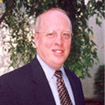Commentary on 2 Thessalonians 3:6-13
We will explore two key ideas expressed in this passage:
(1) the most contested idea, and most contextual — “Anyone unwilling to work should not eat,” and
(2) another idea, widely applicable, less context-bound — “Do not give up on doing what is good.”
“Anyone unwilling to work should not eat” — universal principle or solving a problem in Thessalonica?
This dictum has a long history as a governing principle of community, driven by one fact — “people need food,” and one question — “how do we justly distribute food?” The dictum has been invoked in the last hundred years by wildly different political perspectives — applied not only to food but also to other resources. One perspective uses it to attack Medicaid, food stamps, and other social programs, seen as encouraging sloth and freeloading among the poor, taking advantage of decent, struggling, hardworking people. Another perspective uses it to attack the unrestrained accumulation of wealth and material possessions, seen as encouraging sloth and freeloading among those who have more than enough, taking advantage of decent, struggling, hardworking people. We will best understand Paul’s use of the dictum if we detach it (temporarily) from the context of contemporary political and economic views and explore it in the context of Old and New Testament scripture.
In scripture, the question of how we justly distribute food and other resources within our communities lies on a continuum, with this statement from Paul on one end: “Anyone unwilling to work should not eat,” and a statement from Jesus on the other end, “Give to everyone who begs from you [Greek “aitéo”: asks, requests, pleads for, demands], and do not refuse anyone who wants to borrow from you” (Matthew 5:40-42). Or, from the Old Testament, in Deuteronomy, “Since there will never cease to be some in need on the earth, I therefore command you, “Open your hand to the poor and needy neighbor in your land” (Deuteronomy 15:11).
Each of these three statements at either end of the continuum immediately evokes objections and questions. To Paul: what if someone is willing to work but unable to find a job? How can we justly describe what “unable to find a job” means? Or, if someone is able to work, but has lots of money, and, therefore, is unwilling to work … should that person eat, or do we make an exception for them? Or, is there an age limit for being willing to work — too young or too old? Does simply being of “retirement age” excuse someone from being willing to work? Is there an ability consideration — either physical or cognitive? To Jesus: Wait, give to “everyone” who asks? Everyone? Paul said I don’t have to give to lazy people; what about that? Or, what if they’re a con man, a drug addict, an abuser, etc.? To Deuteronomy: Okay, open my hand to a needy neighbor? Then tell me, who is my neighbor?
Don’t give up on doing good
What problem is Paul solving that causes him to slant his words so thoroughly to one end of the giving spectrum? Despite the common assumption that he addresses poor people taking advantage of others’ generosity, the letter does not say that the problematic people are poor, just that they are “idle” and “busybodies.” Although this could be a group of poor people who are also lazy, Paul does not identify them by economic status. He could also be referring to a group of the idle rich, with resources for doing good, but who spend their time meddling, throwing their weight around because they can. Or, he could be referring to formerly wealthy people who gave away resources to the community, but now are “coasting” on that gift, ordering others around while expecting now to be supported by resources that they still consider, in a way, their own. Regardless what behavior existed that Paul described as “unwilling to work,” he is concerned about its impact on the community and its ministry.
Paul describes the problem by reminding them of the example that he set and how they are not following that example (2 Thessalonians 3:7-10). Paraphrasing Paul, “We weren’t idle when we were with you [because we didn’t have to be]. We paid for what we ate [because we could]. We didn’t want to be a burden on anyone [because we didn’t have to be]. We were setting an example of how, if God has given us capabilities and gifts, we should put them to use for the good of others — for you — even if we weren’t ‘required’ to.”
Paul is not trying to establish social services policies for the city of Thessalonica. He is trying to establish a “do good for others even when you don’t have to” ethic among those who seek to follow Christ. He came to town, did not “have” to work, had the “right” as an apostle not to work, but, because he could work and contribute to the good of the whole, he did. (“Work” here is not limited to earning a paycheck, but is focused on fulfilling whatever purpose God has called us to fulfill.) If there’s something good that we can do, do it. If there’s something good we can give, give it. Even if we don’t have to. Even if we have a right not to.
The closing sentence of the passage sums up Paul’s ethic here. The New Revised Standard Version translates it, “Do not be weary in doing what is right.” The Greek exhortation is a compact three words, difficult to capture exactly. But it offers a counterbalance to the idea that “anyone unwilling to work should not eat.” Rather than advising us to pursue ways to stop ourselves from helping others in need, or limiting our help only to those who prove they deserve it, Paul ends by tilting suddenly over to the other end of the giving continuum. He ultimately calls on the Thessalonians, and us today, to hold some combination of the following as our ethical goal: “Don’t get tired of doing what is right. Don’t get sick of doing good. Keep on keeping on in doing good things. Never stop lifting up those around you if you can. Don’t ever give up on doing good. Do whatever good you can, whenever you can, wherever you can, in whatever ways you can — even if you don’t have to.”


November 13, 2016